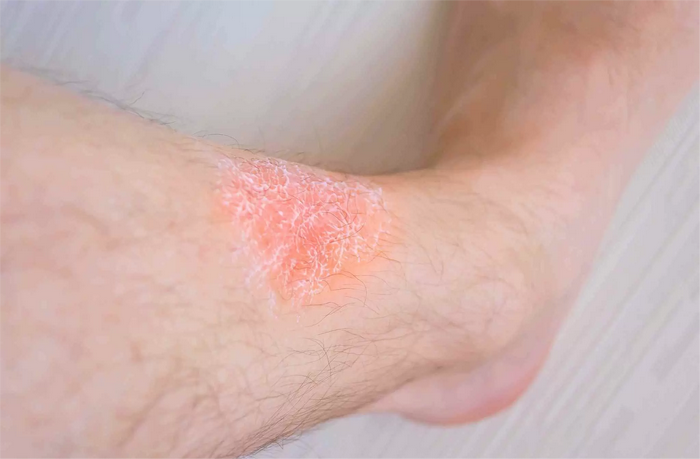Eczema, also known as atopic dermatitis, is a common skin condition that causes redness, itching, and inflammation. Managing eczema involves a comprehensive approach that focuses on reducing symptoms and preventing flare-ups. While there is no cure for eczema, various strategies can help control it and improve quality of life. This article explores key methods for stopping eczema breakouts.
Understanding Eczema
Before diving into prevention strategies, it’s essential to understand what eczema is and what triggers it. Eczema is characterized by dry, itchy skin that can become red and inflamed. It often appears in patches on the face, hands, elbows, and knees. The exact cause of eczema is not fully understood, but it is believed to be linked to genetics, immune system dysfunction, and environmental factors.
Common triggers for eczema flare-ups include:
- Dry Skin: When the skin loses moisture, it becomes more susceptible to irritation.
- Allergens: Exposure to allergens such as pet dander, pollen, and dust mites can trigger eczema symptoms.
- Irritants: Certain substances like harsh soaps, detergents, and synthetic fabrics can irritate the skin.
- Stress: Emotional stress can exacerbate eczema symptoms.
- Temperature Changes: Extreme temperatures and humidity levels can impact eczema-prone skin.
Strategies to Prevent Eczema Flare-ups
1. Moisturize Regularly: Keeping the skin hydrated is crucial for managing eczema. Use a gentle, fragrance-free moisturizer daily, especially after bathing, to lock in moisture.
2. Identify and Avoid Triggers: Pay attention to activities or substances that worsen your eczema symptoms. Avoiding triggers such as certain foods, harsh detergents, or environmental allergens can help prevent flare-ups.
3. Use Mild Soaps and Cleansers: Opt for gentle, fragrance-free soaps and cleansers to avoid stripping the skin of its natural oils.
4. Wear Soft, Breathable Fabrics: Choose clothing made from cotton or other natural fibers that allow the skin to breathe and reduce irritation.
5. Manage Stress: Practice stress-reducing techniques such as meditation, yoga, or deep breathing exercises to help keep eczema under control.
6. Maintain a Healthy Diet: Some individuals find that certain foods can trigger eczema. Keeping a food diary can help identify potential triggers so that they can be avoided.
7. Avoid Scratching: Although it may be tempting, scratching can worsen eczema and lead to infections. Keep fingernails short and consider using anti-itch creams or cold compresses to relieve itching.
8. Keep Skin Cool and Moisturized in Hot Weather: Hot weather can exacerbate eczema symptoms. Stay cool and hydrated, and use moisturizers to prevent excessive dryness.
9. Consult a Dermatologist: If home remedies and over-the-counter treatments are not effective, consult a dermatologist. They can prescribe topical medications or recommend other therapies to manage eczema.
Treatment Options for Eczema
In addition to preventive measures, various treatments can help manage eczema symptoms:
1. Topical Steroids: These are the most commonly prescribed medications for eczema. They reduce inflammation and itching when applied to affected areas.
2. Topical Calcineurin Inhibitors: These medications are used to reduce inflammation and are particularly effective for sensitive areas such as the face and neck.
3. Antihistamines: These can help relieve itching and improve sleep quality by reducing eczema-related discomfort.
4. Wet Wrap Therapy: This involves applying topical medications and then wrapping the affected area in wet bandages to enhance absorption and provide relief.
5. Phototherapy: Controlled exposure to ultraviolet (UV) light can reduce inflammation and itching in some cases.
Lifestyle Adjustments for Eczema Management
In addition to specific treatments, certain lifestyle adjustments can contribute to better eczema management:
1. Humidifiers: Using a humidifier can help keep the air moist, which can prevent the skin from drying out.
2. Avoidance of Cigarette Smoke: Exposure to cigarette smoke can exacerbate eczema symptoms, so it’s best to avoid smoking and secondhand smoke.
3. Regular Exercise: Exercise can help reduce stress levels and boost overall well-being, which may indirectly benefit eczema.
Conclusion
Managing and preventing eczema breakouts requires a holistic approach that addresses both symptoms and triggers. By adopting a skincare routine that focuses on gentle cleansing and moisturizing, identifying and avoiding triggers, and seeking appropriate medical treatment when necessary, individuals with eczema can achieve better control over their condition and enjoy improved skin health and quality of life. Remember, it’s essential to work closely with healthcare providers to develop a personalized eczema management plan that meets individual needs and preferences. With patience and persistence, it is possible to minimize eczema flare-ups and live comfortably with this chronic skin condition.
Related Topics:

























